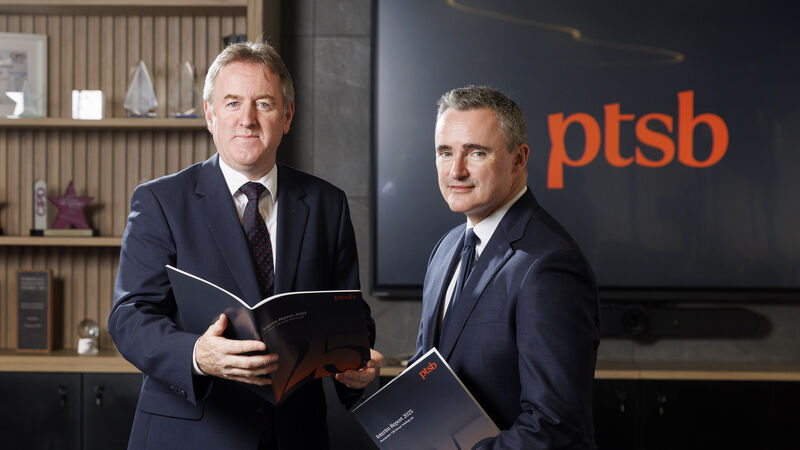PTSB sale could close the book on Ireland’s financial crisis — at a cost to taxpayers

PTSB chief executive Eamonn Crowley and chief financial officer Barry D'Arcy. Earlier this week, the board of the bank announced it would be putting itself up for sale.
This year has seen significant moves by the Irish banking sector and the Government to put the last remnants of the financial crisis and the subsequent bailout of the banks to rest with the proposed sale of PTSB potentially bringing the entire sorry saga to a close.
During the summer, the Government finalised its divestment from AIB, when shareholders in the bank voted to buy back the last 2% the State held in it, bringing the total recouped for the taxpayer to €19.8bn. In addition, on Friday, €390m was returned to the State by AIB following the cancellation of more than 271 million warrants held by finance minister Paschal Donohoe.












